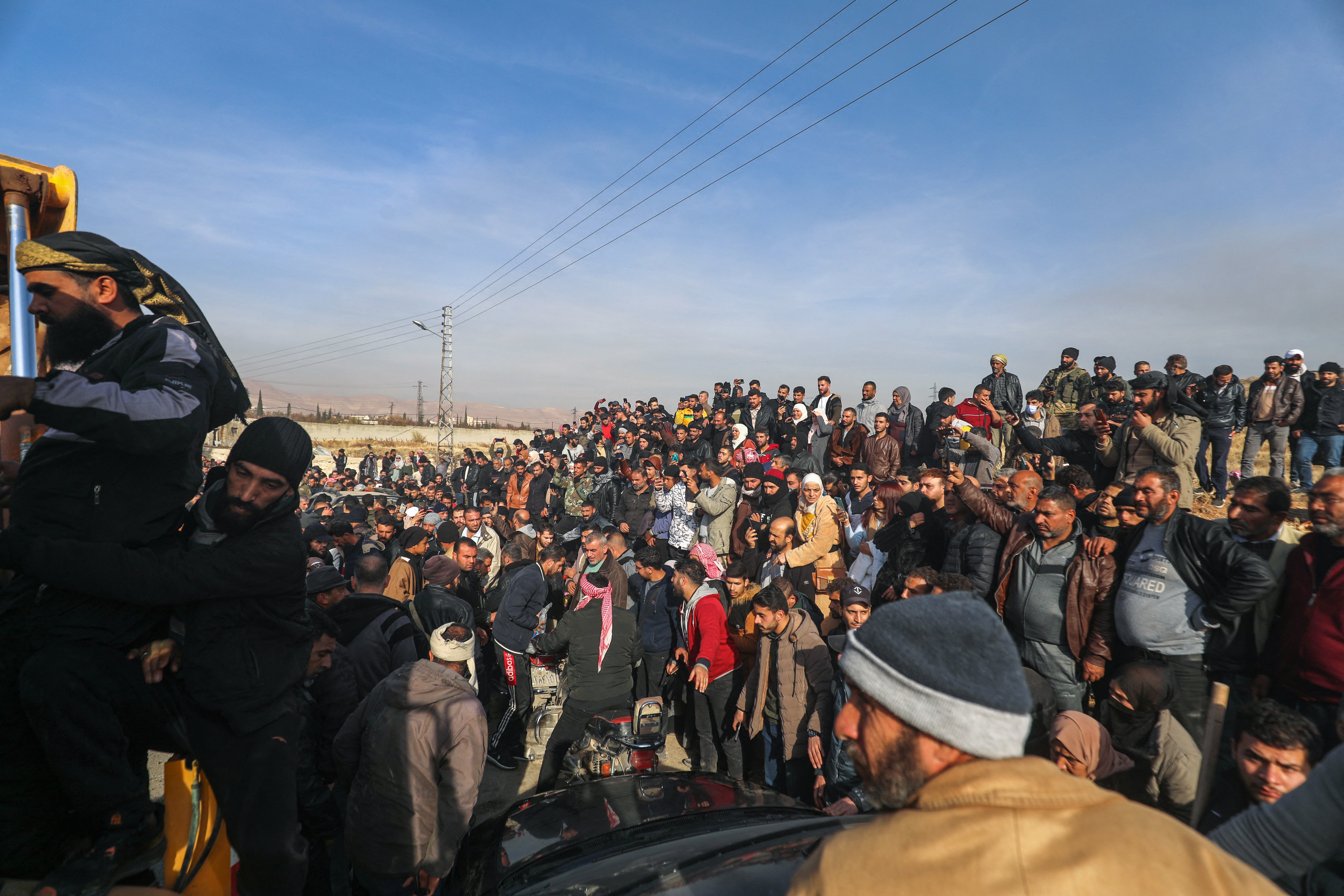Bashar Barhoum, 63, was one of the tens of thousands of prisoners freed from Bashar al-Assad’s prisons in Syria, as civil defence teams investigate underground cells to free more detainees.
After seven months in prison, Mr Barhoum was expecting to be executed, when he woke in his Damascus prison cell at dawn Sunday to men at the door.
But he quickly realised they were seeking to free him and were not Assad’s notorious security forces.
Rebels broke into prisons and security facilities to free political prisoners – and people who disappeared – in the years since civil war erupted in 2011, as they swept across Syria in a lightning offensive that ended fifty years of Assad family rule.
Videos shared on social media showed dozens of prisoners running in celebration after the rebels released them, some barefoot and others wearing little clothing. One of them screams in celebration after he finds out that the government has fallen.
“I haven’t seen the sun until today,” Mr Barhoum told the Associated Press before he set off to find a way to tell his wife and daughters that he’s alive and well.
“Instead of being dead tomorrow, thank God, he gave me a new lease of life.”

Assad’s prisons garnered an infamous reputation for their harsh conditions. Human rights groups, whistleblowers and former detainees reported systematic torture, secret executions, disease and starvation. The Assad regime always denied this, but in 2013 a defector known as Caesar smuggled out 53,000 photos.
“Don’t be afraid — Bashar Assad has fallen! Why are you afraid?” said one of the rebels as he tried to rush streams of women out of tiny cells of the notorious Saydnaya prison in Damascus.
Assad’s security apparatus and prisons served to isolate his opponents and instill fear among his own people, according to Lina Khatib of London think tank Chatham House.
“Anxiety about being thrown in one of Assad’s notorious prisons created wide mistrust among Syrians,” Ms Khatib said. “Assad nurtured this culture of fear to maintain control and crush political opposition.”

As well as Damascus, the rebels freed prisoners in Aleppo, Homs and Hama, as families wept, waiting outside prisons hoping to be reunited with their loved ones.
But some families are still seeking out relatives who have been missing for years.
“This happiness will not be completed until I can see my son out of prison and know where he is,” Bassam Masri told the Associated Press. “I have been searching for him for two hours. He has been detained for 13 years,” since the start of the Syrian uprising in 2011.
Just north of Damascus in the Saydnaya military prison, known as the "human slaughterhouse," women detainees, some with their children, screamed as men broke the locks off their cell doors. Amnesty International and other groups say that dozens of people were secretly executed every week in Saydnaya, estimating that up to 13,000 Syrians were killed between 2011 and 2016.
The Syrian White Helmets organisation said it had dispatched emergency teams to access the “lower layers” of the cells, but so far they have not found any hidden cells.
"The teams consist of search and rescue units, wall-breaching specialists, iron door-opening crews, trained dog units, and medical responders," the group said.
Another campaign group, the Association for Detainees and the Missing in Sednaya Prison (ADMSP), said the prison was now empty.
Far from his home in Syria, Omar Alshogre, who was detained in a Syrian prison for three years – and now splits his time between the United States and Sweden as a human rights activist – watched in awe as videos showed dozens of detainees fleeing. .
“A hundred democracies in the world had done nothing to help them, and now a few military groups came down and broke open prison after prison,” he said.







